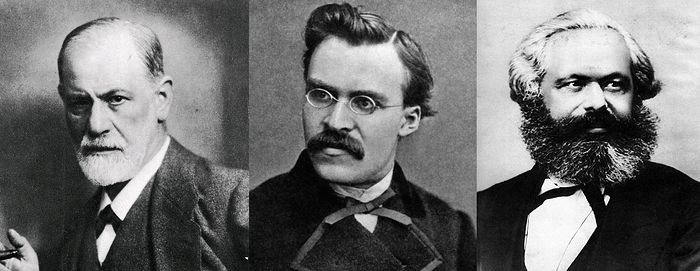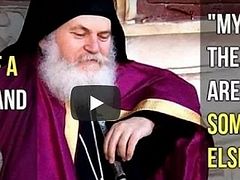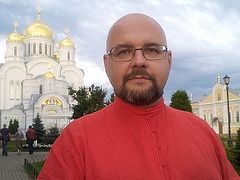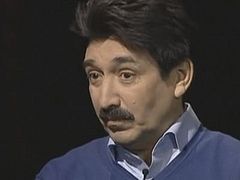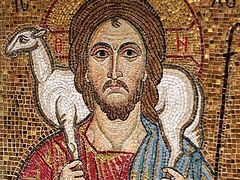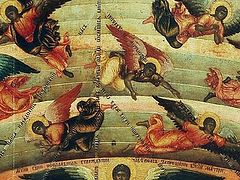I have been slowly reading my way through John Gray’s book, Seven Types of Atheism. It is not an argument with Atheism so much as a study of its underpinnings, strengths and weaknesses (Gray himself is an atheist). Apparently, what someone does not believe in is just as important as what someone does believe in. Not all atheisms are equal.
I was particularly struck by this note regarding the non-belief of John Stuart Mill:
Mill never claimed to have formulated a unified view of the human world. Even so, he founded an orthodoxy – the belief in improvement that is the unthinking faith of people who think they have no religion.
It will sound quite odd to many readers, but good Christian theology has much in common with good atheist thought. Indeed, some feeble attempts at atheism are often the first genuine efforts of theological discipline taken up by many people. An inadequate God inherited either from poor teaching or mere cultural assimilation is fertile ground for unbelief. The nakedness of such a thing (“it’s just me and the universe”) can also provide a fertile ground for serious thought.
The general dividing line within atheism seems to be between versions that represent little more than godless examples of bad Judaeo-Christian thought and versions that take seriously the absence of meaning implied by the rejection of a God-story. These latter accounts seem to fall out with either a semi-oriental mysticism in which the universe itself plays the role of God (think Carl Sagan in his last years) or true nihilists whose world is perhaps the least comprehensible of all (and the rarest).
Human beings seem to be created with a longing for meaning. We not only experience the world, but want to make sense of it as well. That sense-making is a thread of continuity that joins every religious tradition in history. The scope of the story may vary from place to place, but the existence of “story” is ubiquitous. Meaninglessness is not a condition that is easily embraced – indeed, it could be viewed as a form of mental suicide, with or without the dying.
Stanley Hauerwas famously defines modernity in terms of story:
The modern project is the attempt to produce a people who believe that they should have no story except the story that they choose when they had no story.
This is another way of describing the “unthinking faith of people who think they have no religion.”
The 19th century was marked by a number of key figures whom the philosopher Paul Riceour dubbed the “Masters of Suspicion.” He specifically named Freud, Marx and Nietzsche. I would add a number of other 19th century names as well. Their critique (suspicion) was turned towards various aspects of life that were often taken for granted. Freud “unmasked” the commonly accepted figure of God (at least as found among 19th-century Austrian Jews) and saw it as nothing more than a projection of the “super-ego.” Marx unmasked the dark drive of history as a story of exploitation. Nietszche reduced the world to the story of the raw will to power.
These “giants” have had many followers, both intentional and unintentional. What they created can best be seen in their “suspicion.” Is what we perceive in fact the case, or do we live in a world of self-deception? When we suspect the actual process of thought and understanding itself, every answer has a way of being unsatisfying.
The latest iteration of modern suspicion has been directed towards traditional perceptions or understandings of gender/sex (I’m never sure which is the right word anymore). A traditional “binary” approach is now deconstructed as a false world-view, imposed from above. In truth, the “technique” of questioning and replacement has been going on for nearly two centuries now, and shows no sign of abating.
The Masters of Suspicion were not entirely wrong. Much of what passed for Christian belief deserved questioning. An inadequate account of God should be as problematic for Christians as it was for Freud. The glib certitude of the wealthy deserved to be unmasked. A proper Christian understanding of justice had been set aside and left the world “upside-down.” Marx forced a conversation. Nietzsche is another matter, one that I am not well able to articulate. For me, he seems to unmask the naked forces of dominance that claim to be otherwise.
There is, however, a conundrum within these suspicions. When everything is suspect, even the suspicion is suspect. We can be left with a paralyzing agnosticism, that doubts even its own agnosticism.
Nevertheless, many Christians themselves continue with an “inadequate” God. Gray points out that the notion of improvement, held by “unthinking people with no religion,” is a belief learned from Christians who had begun to secularize their faith. Improvement (“better world,” “progress”) is bad Christian theology that serves little purpose other than to underwrite the modern nation-state and consumer capitalism. It is certainly not the story of Jesus Christ.
A very deep strain of Orthodox theology is described as “apophaticism,” or the “via negativa.” It describes a knowing by “not knowing.” It is, if you will, a denial of everything God is not, in order to know who God is. As such, it is constantly deconstructing the many efforts of humanity that seek to create false gods.
Conversations that seek to unravel the circular reasoning of suspicion often end in frustration. Everything can be questioned, including the questioning. However, the Christian faith rises and falls with the death and resurrection of Jesus. Everything flows from that moment. All Christian thought is, properly, a commentary on Pascha. It is not, at its heart, an argument from reason. Reason and its various theories, whether of meaning, or human nature, or social existence, science, etc., did not create the resurrection of Christ. It comes like an event that inserts itself into the futility of our existence.
I take comfort in the thought that the Scriptures bear witness to the lack of understanding that greeted Christ’s resurrection. The disciples did not get it. His resurrection is not an answer to a question they were asking. It seems, at first, to have confounded them. Nevertheless, He rose from the dead. The life of repentance is a constant embracing of Christ’s Pascha. It is a giving of ourselves to what has been given to us. It is the rejection of every pretense that would erect life on some other basis (as though there were another basis).
That single event of Pascha is the beginning of Christian thought. The best of Christian thought (in my estimation) continues to allow the resurrection of Christ to unmask its every attempt to build a world (or a faith) on any other basis. The resurrection of Christ is the judgment of this world. Its judgment is truly kind. It is truth demolishing the falsehoods that imprison us, freeing us even from ourselves.
Christ is the Master of Truth, the Master of Life and Death, the Master of Love and Forgiveness. He even forgives our suspicions.

